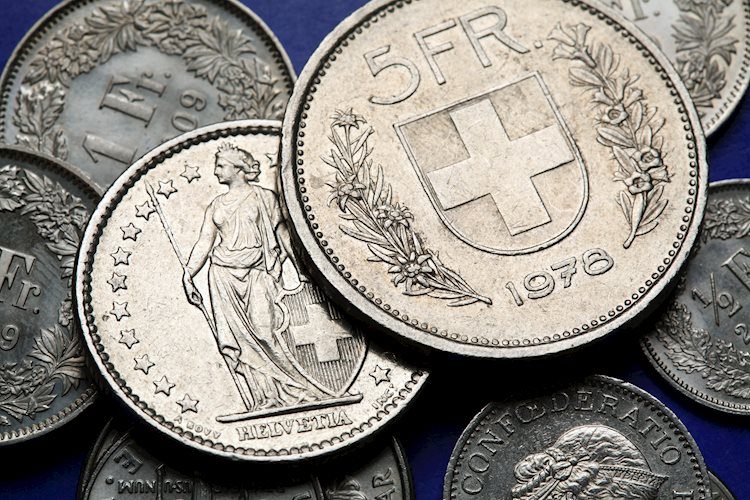The USD/CHF pair is currently depreciating as Friday’s US data point towards a possible aggressive rate cut by the Federal Reserve in September. Former New York Fed President Bill Dudley has suggested a strong case for a 50 basis points rate cut next week, adding more uncertainty to the situation. Traders are expecting the Swiss National Bank (SNB) to deliver a 25 basis points rate cut at its September meeting, further adding to the pressure on the USD/CHF pair. The decline in the US Dollar following the economic data has also contributed to the downward pressure on the USD/CHF pair, with markets fully pricing in at least a 25 basis points rate cut by the Federal Reserve at its September meeting.
The CME FedWatch Tool indicates that the likelihood of a 50 bps rate cut has sharply increased to 41.0%, up from 14.0% a day ago. The decline in US Treasury yields is also adding to the downward pressure for the Greenback, with the US Dollar Index (DXY) trading around 101.10. Former New York Fed President Bill Dudley’s remarks at the Bretton Woods Committee’s annual Future of Finance Forum in Singapore have further fueled speculation about the possibility of a 50 basis points interest rate cut in the United States. The Swiss Consumer Price Index fell to 1.1% year-on-year in August, intensifying speculation about an imminent rate cut by the Swiss National Bank in September.
The Swiss Franc (CHF) is considered a safe-haven asset due to the stable economy of Switzerland, strong export sector, large central bank reserves, and longstanding neutrality in global conflicts. The Swiss National Bank meets quarterly to decide on monetary policy, with a target of an annual inflation rate of less than 2%. Higher interest rates tend to strengthen the Swiss Franc (CHF) and make the country more attractive to investors, while lower interest rates can weaken the currency. Macroeconomic data releases in Switzerland play a key role in assessing the state of the economy and can impact the valuation of the Swiss Franc.
Switzerland’s economy is heavily dependent on the neighboring Eurozone economies, with close to 90% correlation between the Euro (EUR) and the Swiss Franc (CHF). The stability of the Eurozone is crucial for the Swiss economy and the Swiss Franc. As a small and open economy, any sudden changes in economic growth, inflation, current account, or the central bank’s currency reserves can trigger movements in the CHF. Overall, the current situation points towards a possible rate cut by the Federal Reserve next week, leading to a depreciation of the USD/CHF pair and adding to the speculation surrounding a rate cut by the Swiss National Bank in September.


























